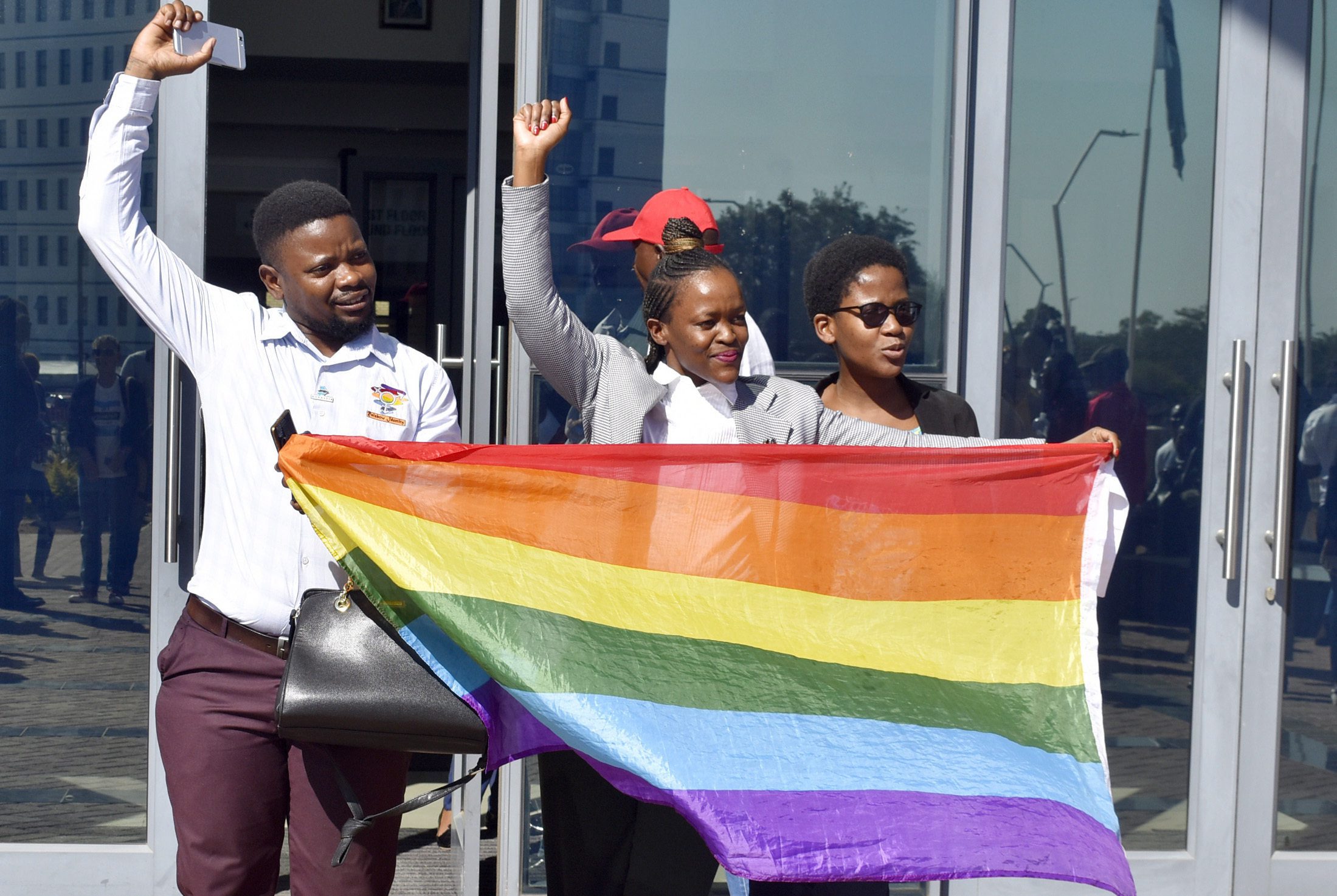A Botswana court has upheld a 2019 ruling decriminalizing gay sex in a major victory for Africa’s LGBTQ+ community.
In a unanimous verdict, Botswana’s Court of Appeal ruled that Section 164 of the country’s penal code had “outlived its usefulness and [serves] only to incentivise law enforcement agents to become key-hole peepers and intruders into the private space of citizens.” Enacted in 1965, Section 164 criminalized “carnal knowledge of any person against the order of nature” with a sentence of up to seven years in prison.
“The High Court was correct in striking down these sections of the penal code on the grounds that they breach the fundamental rights to privacy as well,” said Court of Appeals President Ian Kirby on Nov. 29, speaking on behalf of the five-member panel.
Arguing that Section 164 violated the rights to “privacy,” “liberty” and “equal protection” under Botswana’s constitution, the court also detailed the penal code’s deleterious impact on local LGBTQ+ communities. Kirby said that gay men had lived in “constant fear of discovery or arrest” for decades, citing higher rates of “depression, suicidal behavior, alcoholism or substance abuse” as a result.
The Court of Appeals ruling reaffirmed the same conclusions Botswana High Court judges came to two years ago. In delivering a similarly unanimous decision, Justice Michael Leburu proclaimed that “human dignity is harmed when minority groups are marginalized.”
“A democratic nation is one that embraces tolerance, diversity and open-mindedness,” he continued. “Societal inclusion is central to ending poverty and fostering shared prosperity. The state cannot be a sheriff in people’s bedrooms.”
Although human rights advocates hailed the 2019 decision as “historic,” Botswana Attorney General Abraham M. Keetshabe swiftly appealed. Keetshabe claimed the high court’s verdict “departed in an impermissible way” from a case in 2003 upholding the constitutionality of Section 164, and he accused appeals judges of usurping their powers by legislating from the bench.
The Court of Appeals was not swayed by the government’s argument, claiming the 2003 decision was effectively invalid. The earlier ruling was based on the premise that Botswana would never accept homosexuality, but appeals judges noted that society had made significant strides in embracing sexual minorities in the past 18 years.
“The High Court was correct in striking down these sections of the penal code on the grounds that they breach the fundamental rights to privacy as well,” Kirby concluded.
LGBTQ+ advocacy groups in Botswana celebrated yet another victory for the community following the reaffirmation of their basic rights. Lesbians, Gays and Bisexuals of Botswana (LeGaBiBo), an organization that had challenged Section 164 in court, says the ruling represented a “momentous day in history, a victorious win in ascertaining liberty, privacy and dignity of the LGBTIQ persons in Botswana.
“[T]his judgment sets precedence for the world at large,” CEO Thato Moruti said in a statement. “Moreover, [it’s] a new dawn for better education and awareness about the LGBTIQ issues. I anticipate that more engagement with various arms of government will also set a trajectory towards a more inclusive and diverse nation.”
Members of the organization celebrated outside the courtroom on Monday with rainbow masks. Some wept as the verdict was read, as Reuters reported.
“This will forever change the landscape of democracy, human rights and equality in Botswana,” said LeGaBiBo chairperson Sethunya Mosime in comments to Reuters. “This case has tested Botswana democracy and independence of judiciary. We can strongly say Botswana is a true democracy.
Botswana is now the fifth African country to decriminalize its sodomy laws, which were largely imposed during the period of Western colonization. Others to repeal the anti-gay codes are Angola, Lesotho, Mozambique and Seychelles, according to Africa News.


 Why you can trust Xtra
Why you can trust Xtra


